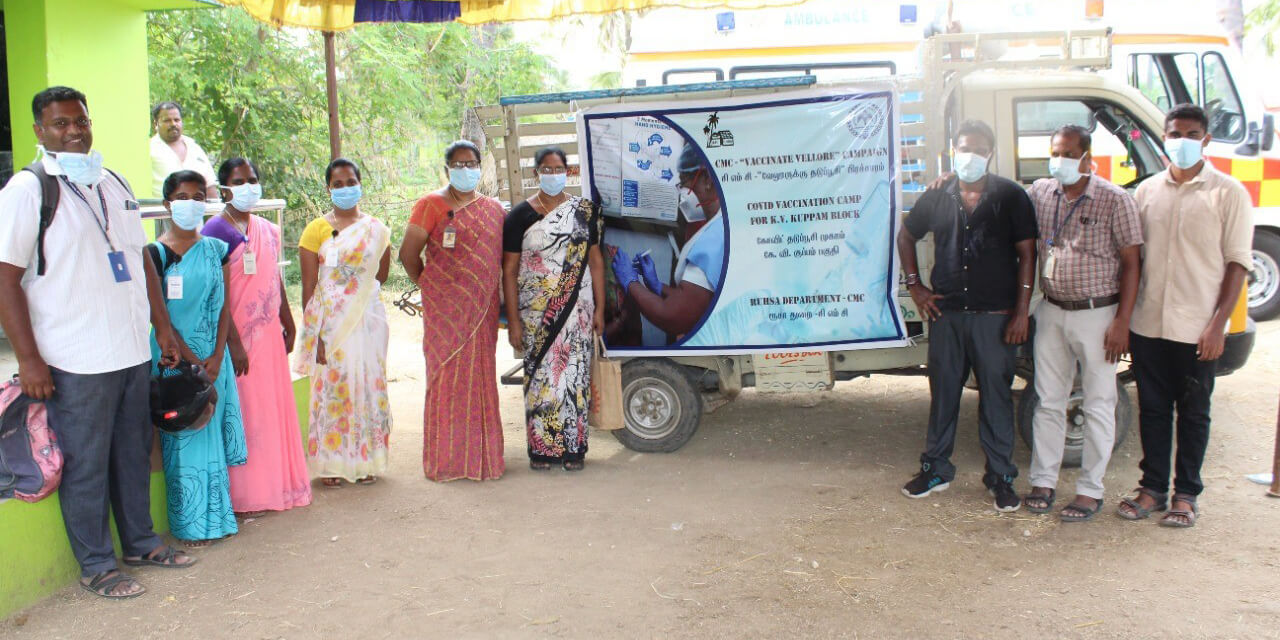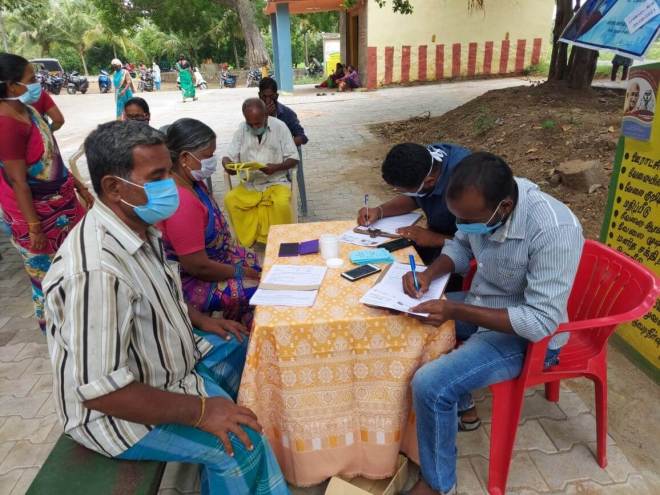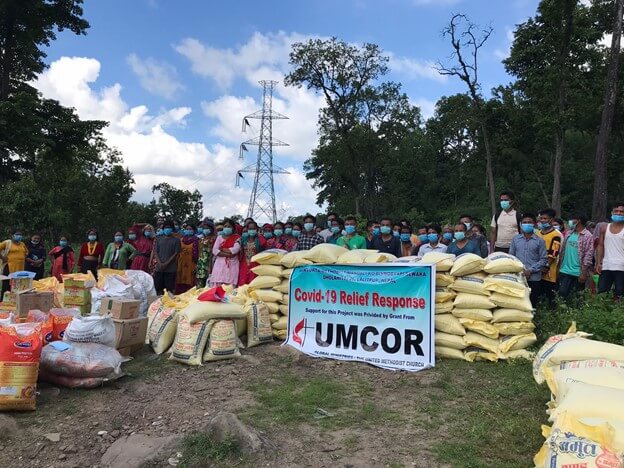Global Ministries support helps South Asia partners prevent and treat COVID-19

Increasing public awareness and information about COVID-19 and vaccines took to the streets in India. PHOTO: COURTESY OF CMC VELLORE
When COVID-19 cases skyrocketed in South Asia, support made it possible for partners to mobilize, prevent and treat the virus in their local communities.
By Dan Curran
November 12, 2021 | ATLANTA
Currently, less than 10% of the world outside the United States is fully vaccinated against COVID-19. Since the start of the crisis, improving global access to coronavirus prevention and treatment has been a top priority for United Methodists. As the mission agency of The United Methodist Church, Global Ministries, with the United Methodist Committee on Relief (UMCOR), has been supporting efforts around the world to improve local access to health care, especially in areas that have been particularly hard-hit by the coronavirus.
During the spring and summer of 2021, Global Ministries and UMCOR provided grants to partner organizations in the South Asia nations of India, Sri Lanka, Nepal and Bangladesh. The grants were targeted to areas where the effects of a rapidly growing surge in coronavirus cases wreaked havoc on health-care systems already stretched thin.
In India, access to hospitals and health care can be complicated by many issues, and this was especially evident during the worsening wave of the pandemic beginning in April.
At the Christian Medical College (CMC) in Vellore, Tamil Nadu, India, substantial grants funded procurement and mobilization of essential medical equipment, medications and supplies. This enabled CMC to expand its ability to provide COVID-19 treatment, including increasing intensive care capacity by a remarkable 15 to 20%. Global Ministries also helped to support CMC’s “Vaccinate Vellore” campaign, a program that provided vaccines to thousands of marginalized individuals across all age groups.

In the Hyderabad Regional Conference of India, the Methodist Church of India (MCI) established a fully equipped COVID-19 isolation center on its Methodist Boys’ School campus. With support from Global Ministries, MCI purchased an ambulance to collect and transfer patients to the facility, thereby improving essential local access to health care.
Other grants awarded to partners in the country, such as the Church’s Auxiliary for Social Action (CASA), funded the distribution of COVID-19 protection hygiene kits, public education campaigns and unconditional cash transfers.
Off the coast of India on the island nation of Sri Lanka, the pandemic worsened in May. Partner organizations Lanka Evangelical Alliance Development Service (LEADS) and Association of Mobilizing Community Resources received assistance to get food and hygiene items to low-income families in quarantine and lockdown, as well as personal protection equipment (PPE) to government responders.
Bangladesh has had more than a million cases of COVID-19. While the country has made significant progress in its poverty reduction and food security efforts over the last decades, the pandemic has threatened to undue this progress.
To bolster local food security, UMCOR awarded a grant in July to the Bangladesh Methodist Church (BMC) that was used to provide vulnerable households in Dhaka with food and hygiene kits. This support made it possible for the BMC to help meet the basic human needs of these families suffering because of COVID-19 lockdowns.
In Nepal’s Lumbini province, United Mission Hospital Tansen (UMN MDT) reported record-high maternity statistics for the year just ending – 2,557 deliveries – because government birthing centers were closed as a result of COVID-19. Women were unable to access safe delivery services anywhere else. The hospital’s Maternal Newborn and Child Health (MNCH) project gave women the information they needed to come to Tansen for help, thanks to Global Ministries funding.
In Raksingrang, Nepal, an UMCOR grant to partner Sangyukta Methodist Mandali Ko Biswabyapi Sewakai in August ensured the delivery of food rations and hygiene kits to vulnerable households. The public health crisis and lockdowns were particularly hard on daily wage earners who were unable to provide for their families.

Unfortunately, the COVID-19 pandemic persists in its continuous mutations and spread. Global Ministries and UMCOR remain committed to supporting partners and working to reduce the spread of the disease.
In October, Global Ministries supported a new Advance project initiated by First UMC in Boise, Idaho. One hundred percent of funds donated to “Love Beyond Borders: The Interfaith Movement to End the Pandemic” (Advance #3022671) will support UNICEF’s global effort in distributing safe and effective COVID-19 vaccines around the world.
“Since the start of the humanitarian crisis, Global Ministries and UMCOR have responded with health boards, medical professionals, disaster management coordinators and faith leaders to help, as comprehensively as possible, manage the crisis and strengthen existing work,” said Roland Fernandes, general secretary of Global Ministries and UMCOR. “It has been said that no one is safe until everyone is safe. Helping to fund the equitable distribution of vaccines through this Advance will help United Methodists play a key role in efforts to make that a global reality.”
Dan Curran is a consultant for Global Ministries and UMCOR.
Make a gift to Advance #3021770 to support the fight against COVID-19 around the world.

